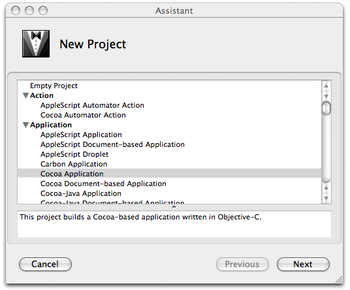
- #COCOA FRAMEWORKS IN APPCODE HOW TO#
- #COCOA FRAMEWORKS IN APPCODE SOFTWARE#
- #COCOA FRAMEWORKS IN APPCODE CODE#
The employment of Swift to develop apps for iOS simplifies the task of development, plus, maintenance is stress-free.

These libraries can be uploaded directly to memory, thereby slashing the size of apps developed and significantly increasing their performance. Additionally, Swift includes dynamic libraries.

#COCOA FRAMEWORKS IN APPCODE CODE#
Swift has the advantage of being an open-source programming language with code less prone to error because it gives inline support that can manipulate data and text strings. However, the main reason for its popularity is effective performance, when compared to other favorable languages. It is proclaimed to be a multi-purpose and multi-paradigm programming language. The prominence and rise of the Swift language are as a result of its use for creating Apple iOS and Linux OS applications.
#COCOA FRAMEWORKS IN APPCODE SOFTWARE#
All the same, Objective-C is very well-preferred by some developers for projects of complexity and software engineering challenges. This could be because it is a difficult process to switch to Swift, especially if you have existing applications written in Objective-C that need regular updates. There are still plenty of mobile enterprise apps operating on the Objective-C code, irrespective of the rise of Swift. It is modeled like the C language, possesses a dynamic runtime environment, and it was predominant for the development of iOS apps initially, before the inception of the Swift programing language. Objective-C is one of the high-level and object-oriented programming languages used for developing native applications for iOS. Native iOS App Development Stack Programming Languages: Objective-C and Swift Objective-C Let’s take a closer look at what Apple and Google offer as a native mobile technology stack for their platforms. Anyway, if you ask mobile app developers what development approach is the most preferable, most of them would say – native app development. This is generally visible as apps have had up to 28.7 billion downloads already this year.Ĭombined global Apple App Store and Google Play app downloads from 1st quarter 2015 to 2nd quarter 2019 (in billions).įrom the point of view of development, different apps can be approached in different ways.

However, as mobile technology grows, we become more and more dependent on mobile applications. That’s why the competition in the mobile industry is very stiff.įactually, the availability of various tech stacks has been instrumental in developing apps for enterprise solutions, entertainment, and other aspects of life in general. The evolution and availability of technologies are birthing new varieties of superb mobile apps in today’s market. Our tech-savvy generation is very hard to impress. Choosing the right development approach and mobile technology stack are some of them. There are numerous decisions needed to be made along the way.
#COCOA FRAMEWORKS IN APPCODE HOW TO#
How to make a successful app? This is the dilemma of every mobile app owner.


 0 kommentar(er)
0 kommentar(er)
